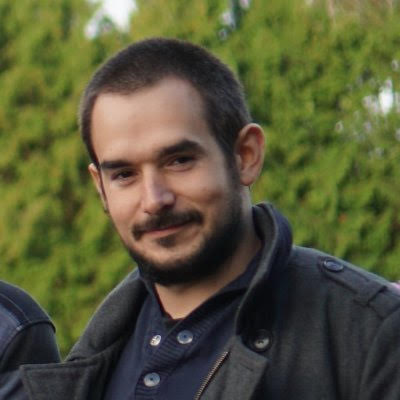When Antibiotics Fail: Understanding Bacterial Persistence During Infection
Speaker: dr Severin Ronneau, University of Namur, Belgium
Talk: When Antibiotics Fail: Understanding Bacterial Persistence During Infection
Time: 26.01.2024, 9:00 am
Venue: Intercollegiate Faculty of Biotechnology, Abrahama 58, hall 042B
 Séverin Ronneau completed his Ph.D. in Microbiology in 2016 at the University of Namur, Belgium. During his thesis, he discovered a novel pathway regulating (p)ppGpp stress alarmone accumulation in Caulobacter and Sinorhizobium in response to nitrogen starvation. After completing his thesis, he was awarded a long-term EMBO fellowship to investigate antibiotic persistence during infection in Sophie Helaine's lab at the CMBI in London, and later at the Harvard Medical School in Boston. Following his postdoc, he secured a Marie Sklodowska Curie grant to advance his independent research in Namur, Belgium. Currently, he is exploring the regulation of (p)ppGpp in Salmonella during infection, drawing upon his expertise from both his Ph.D. and postdoc experiences.
Séverin Ronneau completed his Ph.D. in Microbiology in 2016 at the University of Namur, Belgium. During his thesis, he discovered a novel pathway regulating (p)ppGpp stress alarmone accumulation in Caulobacter and Sinorhizobium in response to nitrogen starvation. After completing his thesis, he was awarded a long-term EMBO fellowship to investigate antibiotic persistence during infection in Sophie Helaine's lab at the CMBI in London, and later at the Harvard Medical School in Boston. Following his postdoc, he secured a Marie Sklodowska Curie grant to advance his independent research in Namur, Belgium. Currently, he is exploring the regulation of (p)ppGpp in Salmonella during infection, drawing upon his expertise from both his Ph.D. and postdoc experiences.
In this seminar, Dr. Séverin Ronneau will discuss his recent work on antibiotic persisters during infection. Bacterial persistence, characterized by chronic and relapsing infections, poses a significant threat to human health, causing considerable morbidity and often requiring multiple courses of antibiotics. Such long-lasting infections are caused by various bacterial pathogens, including Mycobacterium tuberculosis, Salmonella, Pseudomonas, Staphylococcus aureus, and pathogenic Escherichia coli. During infection, Salmonella specifically responds to engulfment by host macrophages by forming high proportions of antibiotic persisters. These persisters evade the combined action of antibiotics and host immune killing mechanisms for prolonged periods by adopting a non-growing state. However, the molecular mechanisms that govern the formation, maintenance, and regrowth of persisters are not yet fully understood. Dr. Séverin Ronneau will discuss the factors that control persister physiology inside immune cells and how we can leverage this knowledge to sensitize these cells to antibiotics, thereby reducing the risk of relapse





